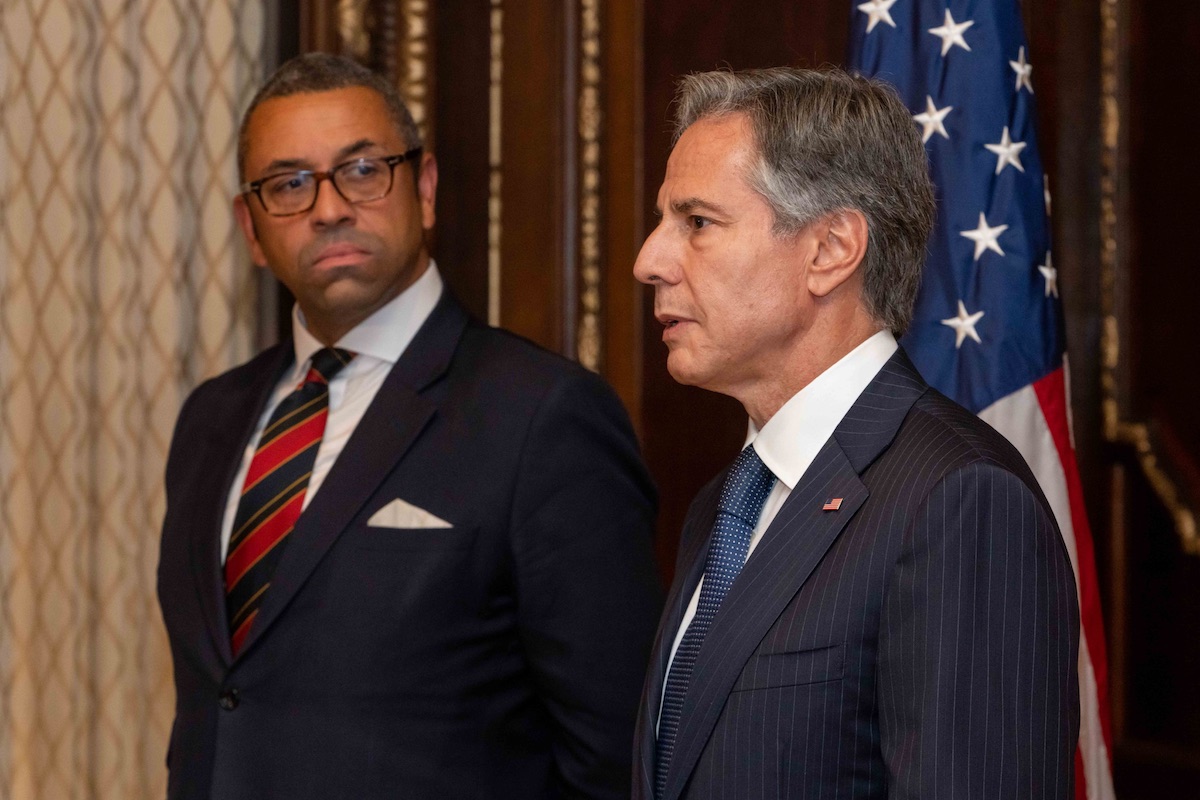
A group of influential congressmen have introduced a resolution calling for the full implementation of the 1998 Good Friday Agreement and expressing hope for the “continued success” of the peace process amid growing doubts over the commitment of hardline unionists to the North’s powersharing institutions.
The resolution comes ahead of the 25th anniversary of the signing of the peace deal in April and calls for steps to be taken to “reconcile past violence”. Its sponsors include Democrats Bill Keating, Brendan Boyle and Derek Kilmer, along with Republicans Brian Fitzpatrick, Mike Kelly, Joe Wilson and David Rouzer.
They warned that “nothing should jeopardise” the progress made under the Good Friday Agreement.
Congressman Fitzpatrick said the 1998 agreement “provides a holistic approach for peace” in the North, while Congressman Boyle described it as “one of the greatest diplomatic achievements of the 20th century”.
He added: “The United States played a critical role in the Irish Peace Process that ultimately led to the Good Friday Agreement and has continued that role in the 25 years since it was signed. I am confident the US will continue to be a strong voice for peace with justice in Ireland.”
With the anniversary less than three months away, there are doubts whether unionism will ever end its opposition to a Brexit-related trade deal which collapsed the Stormont Assembly almost a year ago.
On Tuesday, Sunak’s foreign secretary, James Cleverly, travelled to Washington, to speak to US Secretary of State Antony J. Blinken about progress in negotiations between Britain and the EU (pictured). It follows a meeting on Monday between Cleverly and Maros Sefcovic, the European Commission vice president who is its chief negotiator.
Despite a major advance with an agreement on data sharing, there have been mixed reports regarding the progress of the negotiations. The major EU concession would reduce physical checks at seaports in the north of Ireland, but it has still not yet convinced the DUP to drop its boycott of powersharing. There are suspicions that no deal will be enough to convince DUP Jeffrey Donaldson to enter Stormont in a subordinate post to Sinn Féin’s First Minister designate, Michelle O’Neill.
Radical anti-European Tories have also threatened to join the DUP to vote down a resolution of the stalemate at Westminster. Most controversially, they are demanding an end to the jurisdiction in the north of Ireland of the European Court of Justice, which guarantees that European law is applied correctly. Without the consent of nationalists, such a change which mark a major departure from the Good Friday Agreement.
A deal by April could see a symbolic trip to trip to Belfast and London by US President Joe Biden to mark the anniversary, and open the possibility of a post-Brexit trade deal with Britain. A new US special envoy to the North of Ireland, Joe Kennedy III, is due to arrive to Belfast within two weeks, a symbol of the continuing role of the US as a guarantor of the Good Friday Agreement.
Keir Starmer, leader of the opposition of the British Labour Party, has said that his party would help the British government get a deal through Westminster if Sunak lost votes from hardliners in his party.
“The time to put Northern Ireland above a Brexit purity cult, which can never be satisfied, is now,” Mr Starmer said in a speech at Queen’s University. “There is a small window of opportunity before April.”
He held what were described as constructive talks with the North’s party leaders on Thursday, 12 January, in a sharp contrast with farcical events earlier in the week. On Tuesday, the Tories caused uproar and provoked an instant nationalist walkout after Minister Cleverly refused to meet Sinn Féin leader Mary Lou McDonald as party of multi-party talks in Belfast. The reasons for the move remain unclear, despite a series of bizarre excuses offered by British officials subsequently.
British Direct Ruler Chris Heaton-Harris said “many factors” had gone into the decision to exclude Ms McDonald, including that she is “a representative of a parliament in an EU member state”. He cryptically added that including her in the talks “might not have been seen as a wise thing to do”.
Heaton-Harris also could not confirm if Ms McDonald would be barred from attending subsequent political meetings, but said he had invited her to dinner. “We’re not interested in dinner,” Michelle O’Neill responded.
Heaton-Harris also confirmed that an election to the Stormont Assembly, twice postponed beyond the date legally required, would once again be deferred.
Taoiseach Leo Varadkar, who also met with the main parties last week, said he hopes the decision to exclude the Sinn Féin leader from meetings with British Ministers is ‘not a new precedent’.
![[Irish Republican News]](https://republican-news.org/graphics/title_gifs/rn.gif)
![[Irish Republican News]](https://republican-news.org/graphics/title_gifs/harp.gif)

